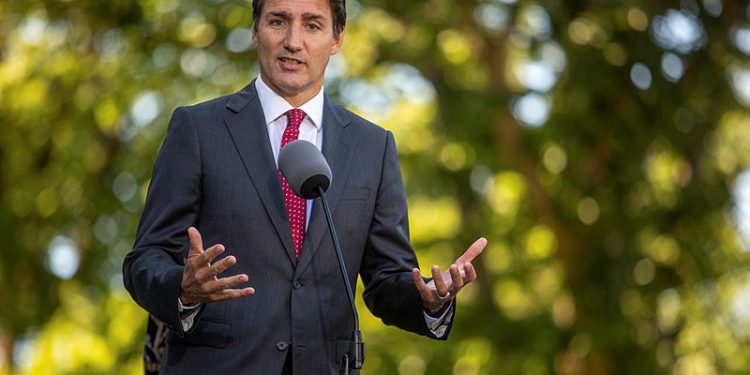
The new Africa engagement strategy, being prepared for cabinet by Liberal MP Robert Oliphant, presents an opportunity to reset relations with African nations. It is time to move away from a donor and recipient relationship to partnerships between and among equals.
The launching pad of this new engagement with the continent should be an inaugural Canada-Africa Heads of State Summit in Ottawa to signal Canada’s new approach.
The Canada-Africa relationship, however, cannot be fundamentally reinvigorated without a significant increase in the number of Canadian diplomatic missions in Africa. Canada should have politically attuned boots on the ground, including highly visible ambassadors to convey the unfiltered Canadian perspective.
Similarly, Canada should have strong and credible leaders on the home front to steer the long, and, no doubt, convoluted process of pulling the continent away from the periphery to the core of Canadian foreign policy and political debate.
Beyond an inadequate diplomatic footprint, the absence of a flagship Canada-Africa initiative—with name recognition and a monumental impact among Africans—is striking. Comparatively, the United States has the African Growth and Opportunity Act, the President’s Emergency Plan for AIDS Relief, Power Africa, and the Young African Leaders Initiative.
But since resource allocation reflects priorities, the addition of a new high commission in Rwanda, as well as a mission and permanent observer to the African Union, are good first steps.
When Nelson Mandela arrived in Ottawa and addressed the Parliament of Canada in 1990, just four months after he was released from prison, he requested the assistance of Canada to achieve “economic results” after “democratic transformation.”
He also said that Southern Africa has the resources to give its people a bright future, “which will make it profitable and worthwhile for the rest of the world to [then] enter into a mutually beneficial system of co-operation.”
Thirty-two years later, many African countries have undergone democratic transformations, and have achieved economic results, which make it profitable for Canada to enter into mutually beneficial partnerships.
And since January 2021, there is a superstructure—the African Continental Free Trade Area agreement—through which Canada should actively promote long-term trade and investment opportunities between business communities in Canada and Africa.
But to make the most of Africa’s first continent-wide free trade area, Canada should establish a whole-of-government system to support small and medium-sized companies that may be eager to do business on the continent, but need hand-holding.
For the most part, governments in the Global North have packaged engagement with Africa as a single story of charity. This narrative, reinforced by images of conflicts and poverty, consistently portrays Africans as victims in need of aid. Canada’s engagement with the continent has followed that script for better or worse.
But this charity narrative has done little to induce sustainable and high-quality economic growth, and has failed to convince African leaders to work with Canada to strengthen justice and human rights, on the international front.
So, Canada should not talk about charity or aid anymore, but rather about offering technical assistance for large-scale infrastructure, energy, and mining projects, building businesses or industries in investment friendly environments, creating good local jobs, and promoting security and stability in the global order.
At a time when China, the United States, Russia, France, Japan, and others are also competing in Africa, it would be better to reframe Canadian engagement as an opportunity to facilitate two-way trade and investment initiatives, and support African priorities.
A change of narrative notwithstanding, the success of Canada’s Africa engagement strategy may ultimately come down to how Canada moves forward on three key issues that can help sustain the Canada-Africa relationship beyond the length of political cycles.
First, Canada should work in concert with key African countries to open new commercial opportunities for cultural entrepreneurs and expand people-to-people ties and cultural exchanges, in line with the June 2019 conclusion of a Senate Committee on Foreign Affairs and International Trade study that cultural diplomacy should be a pillar of Canada’s foreign policy.
Second, Canada should afford Africa’s diaspora communities across the country and Canada’s diaspora communities on the continent, the opportunity to influence the content and direction of the Canada-Africa relationship through a representative body—a move that would improve the quality of the relationship.
Finally, Canada should work in tandem with African civil society groups, outside of state-state relations’ frameworks to open up space for dialogue, in which African civil society groups are able to constructively engage with Canadian counterparts and channel their concerns to the Canadian government.
In 2015, prime minister-elect Justin Trudeau proclaimed to allies—who may have thought that the country had lost its “compassionate and constructive voice in the world”—that Canada was back. Seven years later, the Canada-Africa relationship merits an urgent and necessary reboot.
The international context is one in which Canada should forge new partnerships with like-minded African democracies to defend the rules-based international order. The COVID-19 pandemic and the war in Ukraine have caused geopolitical ripples in Africa and elsewhere, creating immediate and long-term challenges or opportunities, and Canada should remain resolute in demonstrating solidarity with African allies.
In sum, Canada should be a partner today and tomorrow, in the emergence of the continent, under the African Union’s Agenda 2063.
Mafoya Dossoumon is a member of the Africa Study Group Secretariat—an affiliate of the Canadian International Council National Capital Branch. The views expressed are the author’s own and not the views of the Africa Study Group.
Aricle originally published in The Hill Times on 26 September 2022.